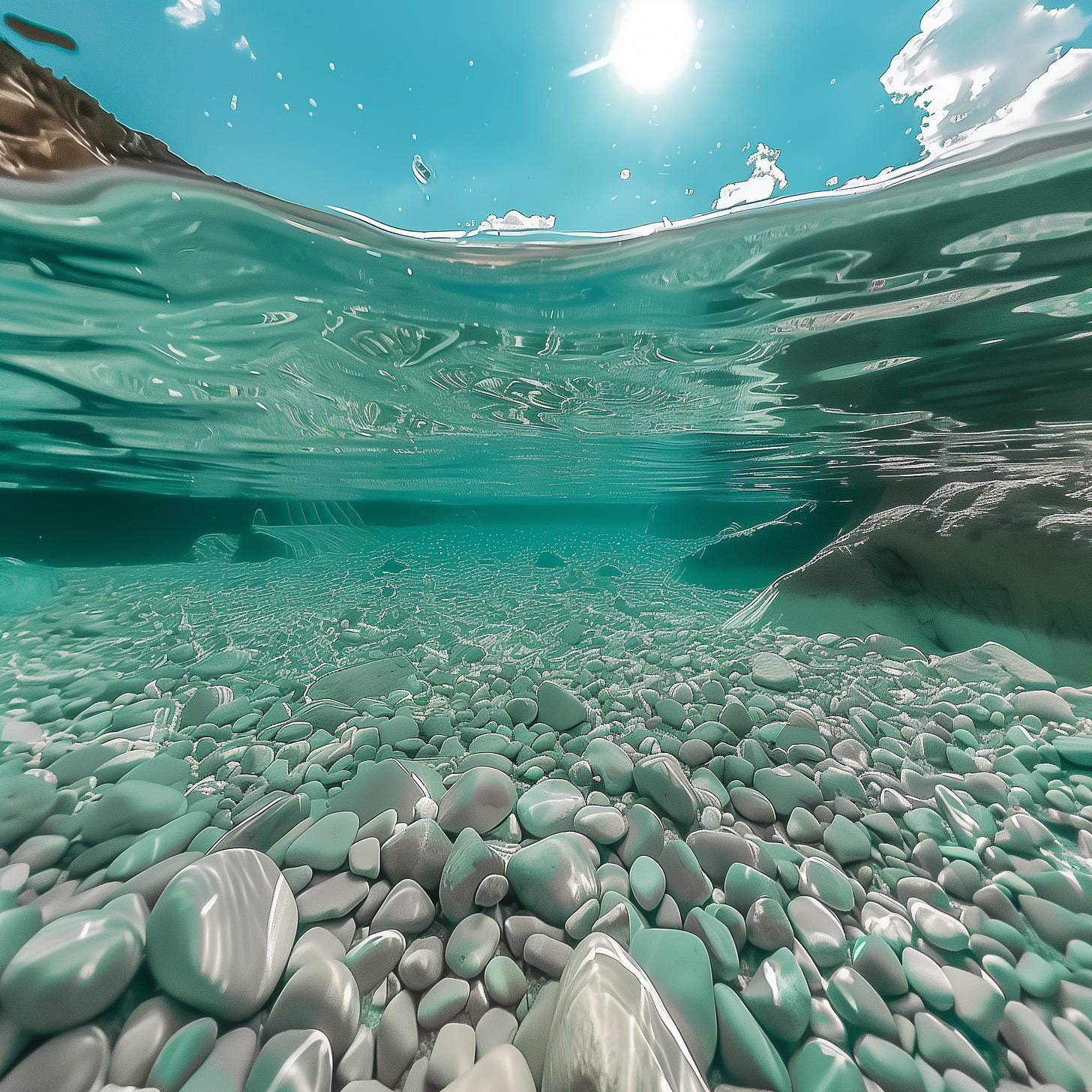Swimming is a fantastic way to keep fit, have fun, and enjoy the great outdoors or indoors. As someone who learned to swim at the tender age of four in an above-ground pool my parents had, I can attest to the lifelong joy and health benefits swimming provides. My dad used to call me "Fish" because I loved diving deep and swirling around like a mermaid, a fitting nickname for a girl who adored "The Little Mermaid." Despite a childhood fear of the ocean after watching Jaws, swimming remains my favorite activity, especially the breaststroke, which I perfected on my high school swim team.
Health Benefits of Swimming
Full-Body Workout: Swimming engages almost every major muscle group, providing a thorough workout that strengthens the core, improves flexibility, and tones muscles. It's an excellent cardiovascular exercise that enhances heart and lung health.
Low Impact: Swimming is gentle on the joints, making it ideal for people with arthritis, injuries, or those looking for a low-impact workout. The buoyancy of water reduces stress on the body, allowing for effective exercise without the risk of injury.
Mental Health Boost: The rhythmic nature of swimming can be meditative, reducing stress and anxiety levels. The water's calming effect, combined with the endorphins released during exercise, can significantly improve mood and mental well-being.
Improved Sleep: Regular swimming can help regulate sleep patterns, promoting better sleep quality. The physical exertion and relaxation experienced in the water can make it easier to fall asleep and stay asleep.
Weight Management: Swimming is an efficient calorie-burning exercise. Depending on the intensity and stroke, swimmers can burn hundreds of calories per hour, aiding in weight loss and management.
Types of Swimming Environments
Chlorine Pools: These are widely available and provide a controlled environment with consistent temperatures and sanitation. Chlorine kills harmful bacteria and pathogens, making it a safe option for swimmers of all ages.
Lakes and Ponds: Swimming in natural freshwater bodies offers a unique connection with nature. They are typically free of chemicals and provide a tranquil environment. However, it's essential to ensure the water is clean and free of harmful bacteria before swimming.
The Ocean: Ocean swimming offers a robust cardiovascular workout due to the resistance of waves. Saltwater is also beneficial for the skin and can help with respiratory issues. However, ocean swimming requires caution due to potential hazards like strong currents, jellyfish, and the occasional fear-inducing marine life (thanks, Jaws).
A Very Salty Sea: The Dead Sea is a prime example of a very salty sea where swimming is a unique experience. The high salinity makes you buoyant, and the minerals in the water are excellent for the skin. However, it’s not suitable for prolonged swimming due to the extreme salt levels.
Saltwater Pools: These provide a more natural swimming experience with less chlorine. The salt is gentler on the skin and eyes and can offer similar benefits to swimming in the ocean without the associated risks.
Fresh Water Springs: Dipping in a fresh water spring can be a refreshing and invigorating experience. The cold temperature of the spring water stimulates circulation and can be very stimulating. I remember a float trip eight years ago where I dipped in a fresh water spring—it was so cold but also incredibly refreshing.
Mineral Springs: Swimming in mineral springs can offer therapeutic benefits due to the high concentration of minerals like magnesium, calcium, and potassium. These minerals can help with skin conditions, reduce inflammation, and promote relaxation.
Waterfalls: There is something uniquely powerful about the intense shower of a waterfall. The force of the water can provide a natural massage, relieving muscle tension and invigorating the senses. The experience of standing under a waterfall can be both exhilarating and soothing.
Recommendations for Swimmers Without Personal Pools
For those without access to a personal or neighborhood pool, there are still plenty of options:
Public Pools: Many communities offer public swimming pools that are well-maintained and provide swim classes, lap swimming, and recreational swim times.
Recreation Centers: Local gyms and recreation centers often have indoor and outdoor pools accessible through memberships or day passes.
Natural Bodies of Water: Lakes, ponds, beaches, fresh water springs, and waterfalls are excellent alternatives for swimming, provided they are safe and clean.
Historical Highlights of Swimming
Swimming has a rich history dating back to ancient civilizations. The earliest records of swimming date back to 2500 BCE in Egypt, where depictions of swimmers have been found in ancient artwork. The Greeks and Romans were also avid swimmers, using it for training soldiers and as a competitive sport.
In mythology, Neptune (Poseidon in Greek mythology), the King of the Ocean, symbolizes the powerful and mysterious nature of the sea. As a god who ruled over all aquatic life, he represents the deep connection humans have with water, a connection that is as ancient as humanity itself.
Swimming continues to be a beloved activity worldwide, celebrated for its numerous health benefits and its ability to connect us with nature and our own physical capabilities. So, whether you're diving into a chlorinated pool, a serene lake, or the vast ocean, swimming offers a gateway to health, relaxation, and endless enjoyment.










